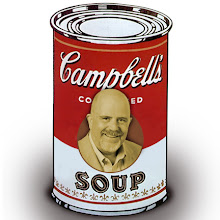When I picked up the Twitter hash feed for the San Antonio Rock and Roll marathon Sunday morning from the front page of the online Express-News, I was amazed at how many runners were tweeting their expectations before the race.
For those still new to social media, a "#" on Twitter is what is referred as a hash tag. More and more, main stream communicators are starting to embrace the use of them in event management. The organizers at the San Antonio event used #RnRsa as their official hash tag. Prior to go to church, I was able to read the comments of all the racers by searching for that term on Twitter. I found the one by a runner from a small town that there were more people in the race than his home funny especially when he said the race should have its own zip code.
I recently used hashtags for two events myself. At the Oklahoma City and Austin Innotech, the #innotech hash tag allowed me to monitor the conversations of hundreds of attendees. For the Oklahoma City event, I was able to monitor the conversations from San Antonio. When one attendee questioned the scope of programs, I quickly sent him a response with the @OKC_Innotech twitter account to ask him what he would do to improve the show for next year.
For those new to social media, a hash tag is easy to set up. However, most people overlook the integration of it with other traditional communication tools. For example, an event organizer can put the hash tag on advertisements in trade show brochures. They can also put it on their ads in magazines, newspaper and other publications. Most importantly, they should prominently display them on signs such as the starting point of a race or at a trade show.
What I like about hash tags is that they allow companies and organizers to listen to their customers. Hash tags give people an unfiltered view on what they think about an event. A savvy business manager can use them to learn what his customers are saying in real time about their event or product. Yet, the best ones will quickly respond to both negative and positve comments as well.
For those still new to social media, a "#" on Twitter is what is referred as a hash tag. More and more, main stream communicators are starting to embrace the use of them in event management. The organizers at the San Antonio event used #RnRsa as their official hash tag. Prior to go to church, I was able to read the comments of all the racers by searching for that term on Twitter. I found the one by a runner from a small town that there were more people in the race than his home funny especially when he said the race should have its own zip code.
I recently used hashtags for two events myself. At the Oklahoma City and Austin Innotech, the #innotech hash tag allowed me to monitor the conversations of hundreds of attendees. For the Oklahoma City event, I was able to monitor the conversations from San Antonio. When one attendee questioned the scope of programs, I quickly sent him a response with the @OKC_Innotech twitter account to ask him what he would do to improve the show for next year.
For those new to social media, a hash tag is easy to set up. However, most people overlook the integration of it with other traditional communication tools. For example, an event organizer can put the hash tag on advertisements in trade show brochures. They can also put it on their ads in magazines, newspaper and other publications. Most importantly, they should prominently display them on signs such as the starting point of a race or at a trade show.
What I like about hash tags is that they allow companies and organizers to listen to their customers. Hash tags give people an unfiltered view on what they think about an event. A savvy business manager can use them to learn what his customers are saying in real time about their event or product. Yet, the best ones will quickly respond to both negative and positve comments as well.




No comments:
Post a Comment